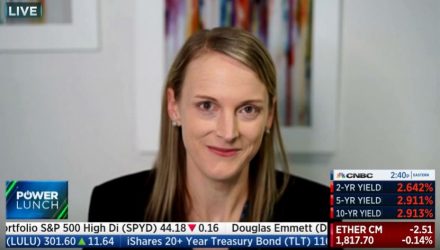Energy prices have surged this year with few signs of slowing down.
Stacey Morris, CFA, head of energy research at VettaFi, recently discussed on CNBC Power Lunch her outlook for energy prices and why she thinks prices will remain high and inventories in the U.S. will stay very tight.
“It’s hard to say exactly how much higher they can go, but I think directionally, the bias is to the upside,” Morris said. “We’re now just getting into driving season. Oil prices are moving higher. You mentioned the OPEC plus agreement – it sounds pretty good on paper but unfortunately isn’t actually going to result in much more volume coming into the market.”
The shortages are not limited to oil; there are widespread problems across the board affecting both natural gas and electricity as well.
Morris said U.S. natural gas prices have been at multi-year highs and very strong counter-seasonal. “There’s a lot of pressure here in the U.S., but a lot more pressure abroad. And unfortunately, it’s a kind of messy situation, and there’s no easy fix,” she added.
When asked about the spare capacity that currently exists in the world, Morris pointed to Saudi Arabia, and the United Arab Emirates, which she said have spare capacity of roughly 3 million barrels per day – equating to roughly 3% of global supply.
“They’ve been reluctant clearly to kind of bring that spare capacity back online. So while that’s there, I think they’re trying to avoid tapping it as much as they can to just keep that on as an option in case things continue to get even tighter,” Morris said.
Morris said the supply could get even tighter under certain circumstances.
“To some extent, the barrels that are moving to Europe today, or that have been going to Europe, maybe they’re rerouted to China, India, and other parts of Asia. So there’s some flexibility there, but there are many cross-currents today. The Russia supply is certainly one of those, and how does that get rerouted over time?” Morris said.
“On the demand side, what does it mean for China to lift some of their COVID restrictions? Do we see demand start to come back more meaningfully there? I mentioned driving season here in the U.S.,” Morris said. “So, barring a global recession, demand trends should continue to be pretty positive, and so there’s just not a lot of cushion in today’s market.”
For more news, information, and strategy, visit the Energy Infrastructure Channel.

